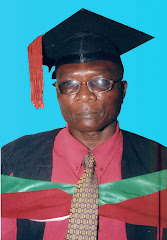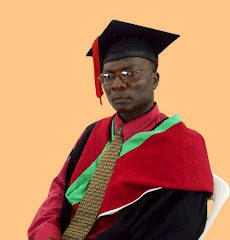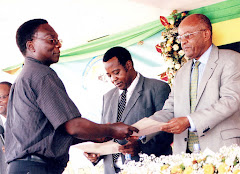Monday, October 27, 2014
Minister warns to avoid over expenditure budget during gas production
The deputy
minister for Energy and Minerals, Stephen Masele on Wednesday last week warned
that Tanzanians should not be much proud of the gas which currently is in
exploration, and become optimistic that it would reduce the individual level of
poverty stricken situation in the country. According to Minister Masele, “since
the government has not yet established the value of the gas once its production
starts, then it was not necessary to start thinking of huge expenditures by now
as it is unpredictable for how long it will last”. He noted that, huge
expenditures if approved at the expense of the gas production, is likely to
cause national economic recession as more money is directed to recurrent budget
in things like workers’ salaries, purchase of luxurious vehicles, allowances
and many others and not targeted to development projects. Masele was expressing
his concern before stakeholders when contributing a debate during a Tanzania
Oil and Gas conference and exhibition (TOGACE) whose theme was titled, “Development of oil and natural gas for the
benefit of Tanzanians” A two day symposium brought together about 500
participants who included academicians most of whom engineers, politicians and
different numbers of the public to discuss how Tanzanians would benefit from
its natural resources currently available in the country. He cited countries
like Greece, Italy, Argentina and Spain which he said had large quantity of gas
production in some years back and unknowingly had imposed high expenses in
their government recurrent budget and when their gases ended, the system could
not revert to normal due to lack of money. Now, he noted that these countries
are in serious economic crisis due to the fact that, have failed to get sources
of money with which to cater for the social needs such as the high salaries and
many others which the higher authorities had approved an aspect that have fallen
victims of endless internal political standoff.
The deputy
minister for Energy and Minerals, Stephen Masele
However, Minister Masele noted that, for Tanzania to be on the safe
side, his ministry is planning to establish the investment fund known as the Sovereign
Wealth Fund (SWF) which would serve as a catalyst for future national
development projects. Elaborating more about the fund, deputy minister noted
that it would have money
derived from the major country’s natural reserves, which are set aside for
investment purposes that will benefit the country's economy and citizens once
their operations ceased. “The fund will
help to diversify the national economy through the use of revenues attained
from such natural resources such as oil and gas”, he said adding that, the
major development projects to benefit from the fund includes the construction
of ports, airports and big farming estates such as sugar. Besides diversifying
economy, the fund would also serve as a stock or bond when the government is
seeking other sources of income to promote economy. However he added that, he
would introduce a bill in the coming parliamentary sessions with a view to help
control expenditures of the revenue collected from natural resources for future
generations. To ensure this, he has assured oil stakeholders in the country
that, he would make sure the bill is approved b y parliament before end of his
office term by August next year when official campaigns for general election
are expected to commence. The deputy minister also took the opportunity
to reassure stakeholders that the government recognizes the existence and
contribution of the private sector in developing the oil and natural gas
industry. He pointed out that Tanzanian companies face investment
challenges in the new energy sector which requires large capital and high
technology and as such, the government was forced to invite foreign companies
which have the ability to meet the investment requirements. Chairman of the Parliamentary
Committee on Energy and Minerals, Victor Mwambalaswa said the forum which is
being conducted annually provides an arena for Tanzanians to learn and share
experiences in the gas and oil sectors.
Monday, October 20, 2014
Songas Ltd donates Sh. 560m/- yearly for education
The leading electricity power producing
company, Songas limited is disbursing a total of $ 350,000 (about Sh. 560m/-)
every year to facilitate the provision of educational need for rural community
people in the country. The firm’s Infrastructure Manager Malcolm Taylor said on
Saturday last week in Dar es Salaam that, his company spends such a huge sum of
money together with other things to sponsor candidates pursuing engineering
courses of various disciplines in higher learning institutions in the country. He
said that, the disbursed money is half of the company’s total budget expenditure
set aside every year to facilitate its Corporate and Social Responsibility
(CSR) activities in areas where it has directly invested. Taylor said in an
exclusive interview at a function where Songas Ltd handed over educational
facilities to Benaco Primary School which is located at Kilimahewa area in Wazo
ward, Kinondoni municipality. The facilities includes, four newly constructed classrooms
that the company built at a cost of Sh. 55m/-, 100 pupils’ desks worth Sh. 12m/-,
a leveled playing ground for pupils at the school whose maintenance cost
reached up to Sh12m/- plus playing game tools for football whose cost is Sh. 2m/-.
The total cost for all these is Sh. 81m/- and were received by the Councilor of
Wazo ward John Marro who was the guest of honour and later handed them over to
the management of the school in a colorful ceremony which was also attended by
parents and guardians of the pupils studying at the school.
He further noted
that, his company has devoted much to help promote education in the country
taking into account t that, education is the key tool for a prosperous future
life especially at this time when the world is converged with new technological
changes. However, he added that, Tanzania need to take drastic measures to
ensure that, it builds a firm educational foundation for younger generation. Songas’ Public Relations Officer in-charge f
community Nicodemus Chipakapaka said that, the Saturday’s activities which
involved also planting of the flower trees and wall painting of some
dilapidated classrooms at the school compound by Songas workers, is part of the
10th anniversary celebrations of Songas since it started operation
of the country in August 2004. On her part the school headmistress, Rhoda
Zigula, than ked the Songas company for their contribution and expressed
further hope for her school and pupils in general. She noted that the school
which started in 2008, had only 200 pupils and now are 1,259 among them females
are 660 while boys are 599. The school started with only 2 teachers and now it
has 20 teachers, among them there are 2 male teachers whereas the rest 18 are females.
Villagers asked to contribute money for laboratory facility
Poor villagers of Gamasara village, Nyandoto ward in Tarime district, Mara region are at risk of having their properties confiscated in case they fail to contribute the sum of money required of them in order to construct a secondary laboratory facility in their ward. A leader in the village has said that, each family in the village is required to contribute the sum of Sh. 20,000 as part of their contribution to facilitate construction of the laboratory facility of the Nyandoto Secondary school which is within their ward currently being supervised by Tarime Town Council. Speaking in a telephone interview early this week, the chairman of the Nyasebe hamlet in the village Deus Ngera confirmed that, village leaders including its chairman had received directives from the higher authorities in the district which required villagers to contribute to the construction of such a laboratory facility. He said, the amount of money proposed was introduced by all village leaders who had attended the meeting and that it was unanimously agreed, whoever fails in one way or another to accomplish the task without concrete reasons will have his property snatched and sold, but couldn’t specify what type of the property when asked. However, he further noted that, this is done in line with the normal procedures which usually occur whenever a communal development project is to be undertaken and which normally atre4 insisted by village elders according to tradition. Commenting over the issue, the Director of Tarime Town Council (TTC), Venance Mwamengo confirmed the incident when contacted last week in a telephone interview and affirmed that, each ward in his jurisdiction has been asked to arrange for themselves in collaboration with village leaders on how their people could contribute to this important development project currently being spearheaded by President Jakaya Kikwete.
“The move is part of the implementation of President Jakaya Kikwete’s order who has requested directors of all district councils in the country to ensure that, ward secondary schools in their areas are equipped with modern State-of-the-art laboratory facilities for students by end of this year”, he said. However, he said that his council will contribute 90 percent of the total cost to be incurred for the laboratory construction in each ward and the rest to be accomplished by villagers in areas where such laboratories are to be built. He assured that his council has put in place the strategic measures with a view to ensure what President Kikwete has insisted is accomplished on time, and that villagers’ contributions has to be included as part of the progress to boost plans. On his part, an official of the Ministry of Local Government and Regional Administration (LG &RA) Mohammed Mavula said in Dar es Salaam on Wednesday last week that, plans by the ministry to boost development projects initiated by local government authorities in the country remains intact. According to him, the issue of constructing laboratories for ward secondary schools in the country is a joint collective workforce which has to be assisted to some extent by rural people where these secondary schools have been constructed. However, he declined to elaborate why villagers as those ones in Gamasara village who have been involved to participate by contributing something and noted that, this is a decision by local government who have full authority that cannot be interfered with their developmental matters. The officer was contacted with a view to establish the legality of the villagers to be included to contribute money to be used for the construction of the laboratories bearing the fact that, most rural dwellers are faced with extreme poverty an aspect that are not able to afford. In response, Mavula noted that, every citizen has the right to contribute wherever appropriate for the national development project to every citizen is directly concerned regardless of their poverty stricken situation as the idea of national development concepts are well stated in national policies
DECI members stranded, DPP promises to work on their appeal case
The newly appointed Director of Public Prosecution (DPP) Biswalo .E.K Mganga has promised to push on the long awaited appeal of a case in which leaders of the defunct Development Entrepreneurship for Community Initiative (DECI) were convicted of misconduct against financial regulations. Speaking in a telephone interview on Thursday last week, the DPP Mganga has assured to work on the appeal which was applied in High Court in August 2013and inform the general public of the outcome. “I am new in the office, just give me time to work on the issue and then will release the outcome to the media so as they inform the general public what is going on about the matter” he said and paused. The long awaited appeal has caused frustration and disbelief among 450,000 DECI members who seem to have lost hope of being refunded with their money which they had sown as seeds in the company before it seized its operation two years ago. The order to refund members of their money was ruled out by the Kisutu Resident Magistrate’s Court in Dar es Salaam after the firm’s leaders were convicted of an offense after operating a pyramid scheme contrary to Section 911 8(2) of the Banking and Financial Institutions Act number 5 of 2006 when brought before the court. Among orders given by the Magistrate Stuart Sanga who was presiding over the case prior to its judgment in August 2013, in his ruling included a directive to the Bank of Tanzania (BoT) to refund members of the public who owed the company over Sh. 92bn/- after they had sown seeds with the company before it seized its operation.
Central Bank of Tanzania, twin tower buildings in Dar es Salaam city.
In the judgment, the court also ordered the company’s dissolution and directed the BoT to confiscate all accounts at various banks opened for the institution and seize all other assets owned by the company to refund the frustrated members who had their money sown as seeds upon verification of required receipts. However, a follow up was made by this paper over the matter with a view to find out how far has the BoT gone in the execution of the court’s order and found out that, no single payment is already settled to members as ordered by the court. Preliminary investigation by this paper over the matter discovered that, the BoT could not immediately effect the order owing to the fact that, the office of the DPP had filed an appeal to High Court whose outcome is not yet out up to now. The BoT’s issued a letter with reference No. DECI (T) Ltd of 4th Nov 2013 to clarify the matter which was signed by its Deputy Governor Lila Mkila that immediately after the judgment on the DECI case, the DPP preferred a notice of appeal to High Court. He further noted that, following this notice which was filed on 23rd August, unless the appeal is determined otherwise the BoT cannot execute the order. Mkila responded after this paper had earlier sent a request of information to the Governor of the Central Bank of Tanzania with a view to see how the BoT has executed the court’s order for the interest of DECI members. According to media reports, by May 14, 2009, at least half a million people had sunk billions of shillings into the scheme, some having borrowed from banks, rickety family budgets and savings and credit cooperative societies for the purpose. The leaders were alleged to have conducted an illegal pyramid scheme whereby they solicited money from people and promised huge returns in the form of interest on money sown. The scheme was made operational in the country on different dates between 2007 up to when the police impounded their premises in March 2009 at their headquarter offices located at Mabibo area in Dar es Salaam.
Saturday, October 18, 2014
Media urged to use knowledge fight international terror groups
FINALISTS of CNN Multi-Choice African
Journalists awards for 2014 yesterday gathered at Kunduchi Beach Resort Hotel
north of Dar es Salaam city to deliberate various issues affecting media coverage
in African continent. Among the most crucial issues that took the centre stage
of discussion included how mainstream media coverage feed or fight
international terror groups in the continent which has caused fear among the
people in some parts of Africa region. The finalists from 18 different African
countries Tanzania included are in the country since Tuesday this week ready to
attend a prestigious ceremonial occasion to honor their media achievements
scheduled to be held today at Mlimani City Hall in Dar es Salaam starting as
from at 19:00 in the evening. Among the five panelists who conducted discussion
on the high table was the Managing Editor of the daily Citizen newspaper,
Richard Mgamba who noted that, investigating issues related to terrorism needs
care and braveness among journalists bearing in mind the fact that, such
malpractices are secretly conducted. In his speech, Mgamba stressed the need of
objectivity while doing coverage on such dangerous incidences and remarked
that, mere use of tax payers’ money would not help stop the malpractice and
what is required in this case is to acquire enough knowledge to curb terrorism.
However, he has cautioned media practitioners to be careful and shouldn’t
despair as a matter of killing the stories as doing so would be creating more
problems rather than helping reduce the phenomenon. Another panelist, a
Nigerian based editor of the daily Guardian newspaper Martins Oloja, talked on
how the Nigerian government is making efforts over the fight against a
notorious ‘Boko Haram’ terrorist group and the losses the group has caused to
the nation. He said that, the group continues to make havocs in some parts in
Nigeria due to its larger network which the Nigerian government has failed to
control, possibly due to insufficient security link up with the insurgencies.
On
her part, Suaoma Negumba, a TV News Editor of the Namibian Broadcasting
Corporation said that, her country is free of terrorism and other forms of
mischief which threaten people’s life. However, she noted that, in order to
curb with terrorism journalists must be courageous enough. CNN International Senior Vice-President based in
Atlanta USA, Deborah Rayner in her presentation was somehow upset and described
the work of journalism as being dangerous
and urged practitioners to be brave enough while doing such coverage.
She noted that, fearful stories related with kidnapping, terrorism happening in
some African countries needs joint concerted efforts to minimize the escalating
habit. Earlier on his opening remarks, the a veteran journalist and a
well-respected senior lecturer of the School of Journalism and Mass
Communication, University of Dar es Salaam Dr. Ayoub Rioba said that,
investigative journalism in Tanzania is experienced with lots of challenges and
practitioners gets a number of difficulties to go through. He mentioned most
common reasons as lack of enough experience to journalists, threats, policies
introduced by media houses, conflict of interest, and less confidence shown by
journalists as among the factors which retards the development of investigative
journalism in Tanzania. He said in an exclusive interview that among others,
lack of free access to information from the government is an exacerbating
factor. However, he noted that unless the media laws are reviewed otherwise the
trend would keep on as usual. However, he has thanked President Jakaya Kikwete
for his ambition when he announced that in November this year, he would make
sure that, the Minister for Information Dr. Fennela Mukandara presents the
media bill to be tabled in Parliament.
Subscribe to:
Posts (Atom)














